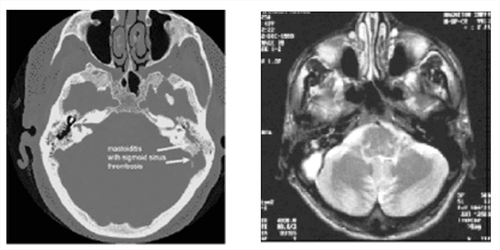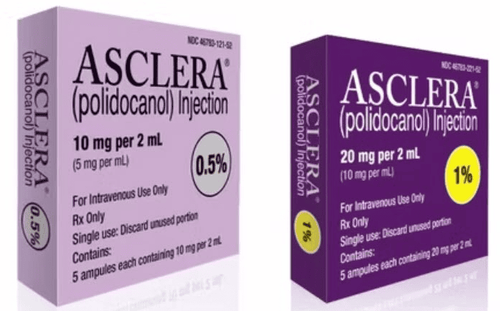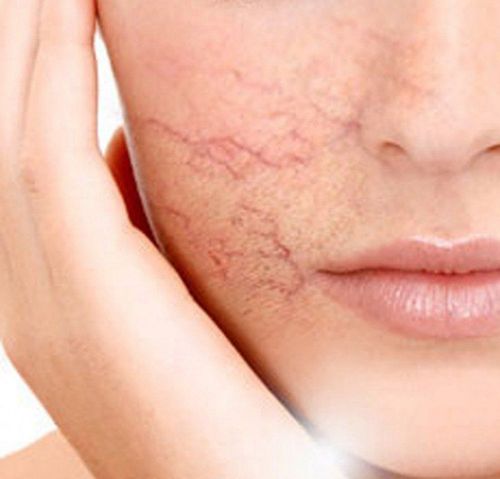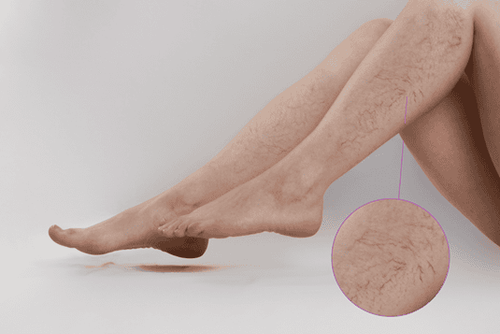This is an automatically translated article.
Varicose veins is a common disease today, especially varicose veins in the lower extremities. Therefore, many patients seek treatment for this disease, such as oral or topical varicose veins. So how effective is the varicose vein medication and how should patients use this drug?
1. What is varicose veins?
The most common varicose veins are chronic lower extremity varicose veins, which is a peripheral vascular disease that often occurs in women. When the valves in the veins are damaged, it will cause the blood in the veins to flow back to the normal direction and over time leads to varicose veins with increasing extent over time if not treated appropriately (such as using orally or topically for varicose veins).
Varicose veins can occur in any part of the body, but the most common location is in the lower extremities because of the constant pressure of the body weight. At the same time, because the structure of blood vessels in the legs is quite long and complex, there is a higher risk of dilatation. People who have to stand for long periods of time such as teachers, production line workers or the elderly and pregnant women are more likely to develop varicose veins.
When dilated, the veins under the legs will expand and rise close to the surface of the skin, accompanied by symptoms such as pain and heaviness, or a feeling of crawling and swelling in the legs at times. certain day.
2. Complications of varicose veins
If no appropriate oral or topical medication for varicose veins is prescribed, the patient has symptoms of increasing severity such as swelling, numbness, frequent nocturnal cramps and an increased risk of thrombophlebitis. varicose veins and stiffness in both legs.
The condition of varicose veins will progress gradually, can cause the entire venous system in the body to decline with increasing severity, causing blockage of the circulatory system and affecting many other organs in the body. Some patients with varicose veins of the legs may have complications with inflammation, ulcers, and skin infections. Another serious complication of varicose veins is an increased risk of blood clots forming in the veins, even blood clots can follow the blood to the heart, leading to artery blockage and even death.
3. How to treat varicose veins?
Treatment methods for varicose veins are aimed at controlling and preventing blood from moving in the opposite direction in the veins, limiting fluid from the microtubules escaping and flooding the surrounding interstitial tissue. Commonly used methods are compression bandages to change the pressure difference and reduce the diameter of the veins, to help blood flow in the normal direction or use oral or topical medications for varicose veins.
Some patients can apply intravenous sclerotherapy if the diagnosis is mild, small varicose veins and reticular varices. In case of severe varicose veins, medical treatment is not effective or complications occur, the doctor will appoint surgery. In addition, at present, the development of radiofrequency or laser beam methods can replace aggressive medical treatments but are not effective.
4. Are varicose veins effective?
Topical medicine for varicose veins in the legs is a product that has the same effect as inpatient varicose veins. The active ingredients in varicose veins penetrate the epidermis and act on the venous walls with the aim of supporting easier blood circulation, helping patients effectively reduce symptoms such as pain, aches, and pains. feeling of heaviness and numbness in the legs.
Similar to oral drugs, topical varicose veins can bring some effects as follows:
Reduce symptoms caused by varicose veins, and limit skin inflammation; Reduce nocturnal cramps and limit the uncomfortable feeling of crawling ants; Limit the degree of dilatation and increase the strength of the vessel wall; Limit the formation of blood clots in the veins that cause blood vessel blockage; Prevents small capillaries from bursting and reduces vascular permeability; Limit the formation of inflammatory substances. However, topical medications for varicose veins are only effective for superficial blood vessels under the skin. For deep veins or patients with signs of venous swelling, skin ulcers, the use of varicose veins is less effective.
How to use topical medication for varicose veins:
Clean the skin and wait for it to dry; Use a moderate amount of medicine to evenly apply to the varicose veins; Patients need to apply the drug regularly, 2 or 3 times a day and maintain a habit of using it to increase the effectiveness of the drug.
Please dial HOTLINE for more information or register for an appointment HERE. Download MyVinmec app to make appointments faster and to manage your bookings easily.













